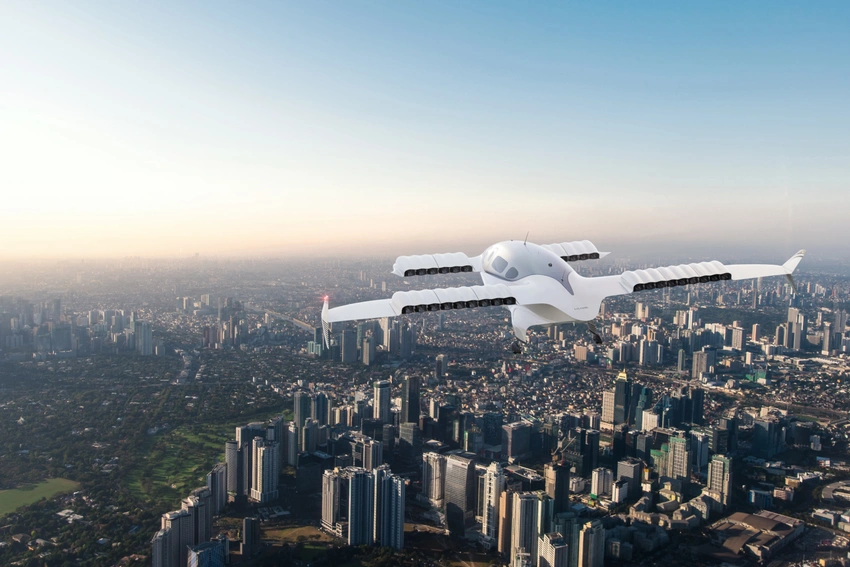
The developer of an electric vertical takeoff and landing (eVTOL) jet is teaming with a private jet and helicopter operator to establish advanced air mobility (AAM) services in the Philippines and other Southeast Asia countries.
Electric aerial vehicle (EAV) maker Lilium and PhilJets signed a memorandum of understanding to jointly develop routes and determine passenger demand for an on-demand eVTOL service in the region.
The deal also includes the sale of 10 Lilium jets to PhilJets.
“The Philippines is well suited for eVTOLs to effectively connect thousands of islands together through sustainable and high-speed air mobility,” said Sebastien Borel, chief commercial officer of Lilium “Asia is a key market for Lilium, and with the unique topographical challenges this region presents, the innovative design of the Lilium Jet is uniquely suited to address them.”
This is not the first announcement relating to EAV services starting in the Philippines.
LuftCar, the developer of a hydrogen-powered eVTOL, also is expanding into the Philippines via a new partnership.
LuftCar and eFrancisco Motor Corporation (eFMC) in the Philippines recently formed a strategic partnership to develop and deploy the LuftCar flying car system in the Philippines.
The LuftCar hydrogen-powered air vehicle would connect to and lift road vehicles created by eFMC, a major jeepney manufacturer.
LuftCar plans to lead the EAV vehicle prototype development and eFMC would provide the vehicle chassis.
In the Lilium-PhilJets partnership, the plan is to bring high-speed regional air mobility to Southeast Asia.
The Lilium eVTOL craft is a jet, unlike most EAVs.
The seven-seater vehicles are planned as a regional air mobility service, connecting cities and towns up to 125 miles apart at speeds of up to 185 mph.
The flying vehicle features forward canards (small wings near the front) along with main wings and a distributed propulsion system with fixed landing gear without hydraulics.
During takeoff, the plane would use its 36 electric ducted fans to hover for up to 25 seconds and 20 seconds during the landing phase, according to the company. Most of the flight time would be in the cruise stage with a relatively short takeoff and landing time.
The company estimates the range of the craft at 150 miles.
Lilium recently teamed with the Lufthansa Group to explore opportunities in aviation including ground and flight operations, EAV maintenance and flight training in Europe.
Founded in 2015, Lilium has manufacturing facilities in Munich, Germany, with teams in the U.S. and Europe and recently started production of its vehicle with the European market expected to account for more than 9,000 vehicles through 2035.
The fuselage for the Lilium jet was developed by Aciturri in Spain, with delivery to Lilium facilities in Germany. Aciturri, also a Lilium investor, has designed and manufactured airframe components for Airbus, Boeing and Embraer.
Lilium recently secured $192 million in financing in addition to a coming public offering. It received funding from different investors including board members and Tencent Holdings, an initial backer.
The Federal Aviation Administration (FAA) recently issued Lilium a certificate validation of its jet, having previously obtained airworthiness authority from the European Union Aviation Safety Agency.
The company is not alone in the race for new air transportation services, including flying cars, personal air vehicles, both ultralights, which do not require a pilot license, and certified vehicles, which require a license.
One eVTOL company, Joby Aviation, recently announced the planned building of a facility in Dayton, Ohio, to deliver up to 500 eVTOL vehicles a year. Joby has partnerships with Uber and Delta Air Lines.

